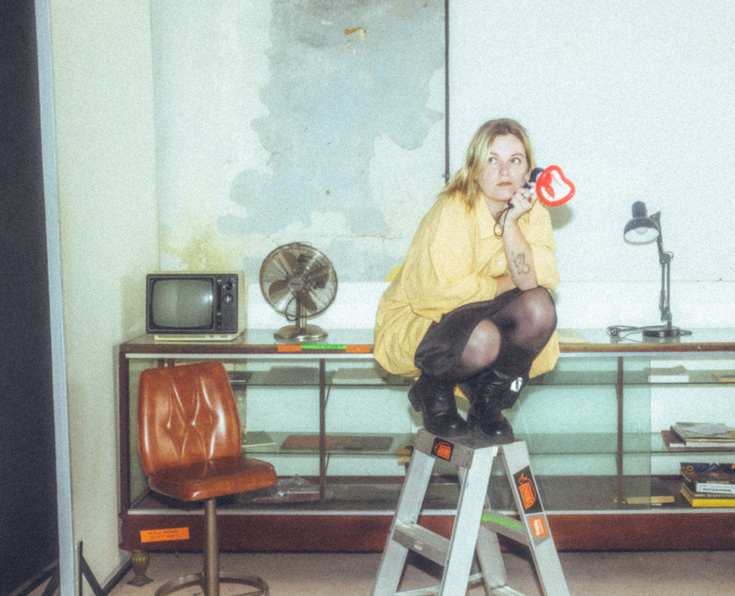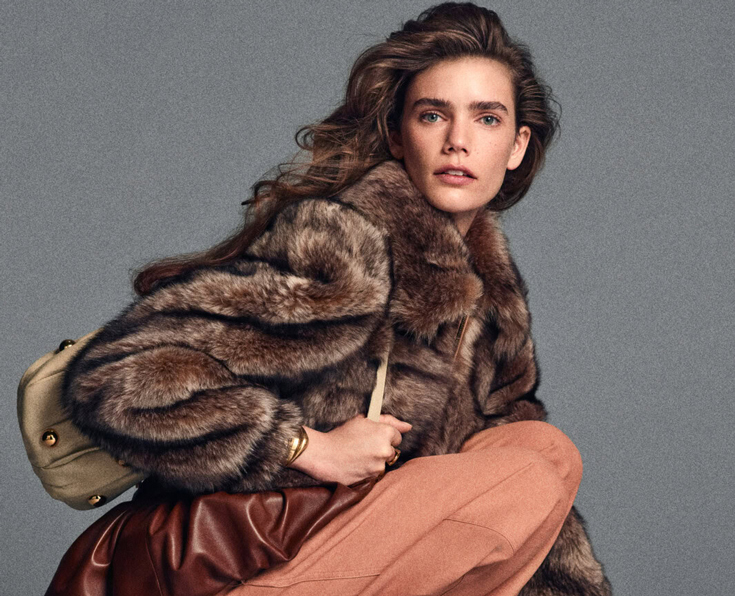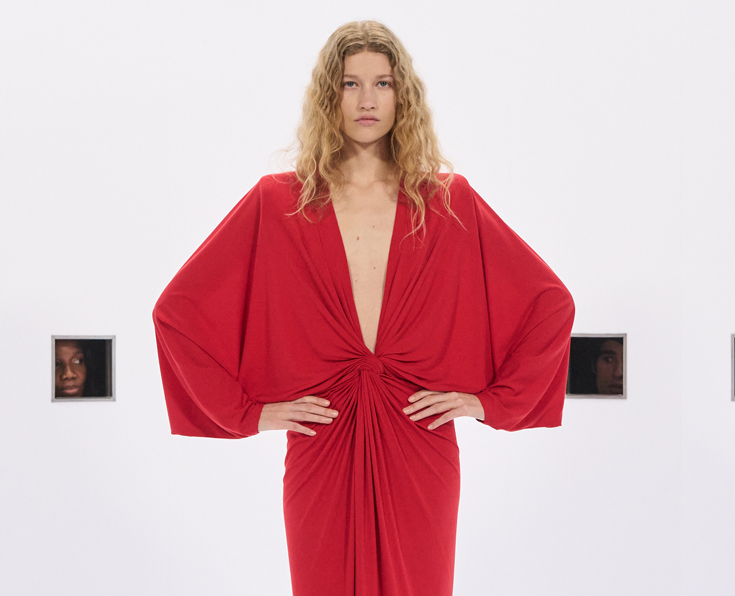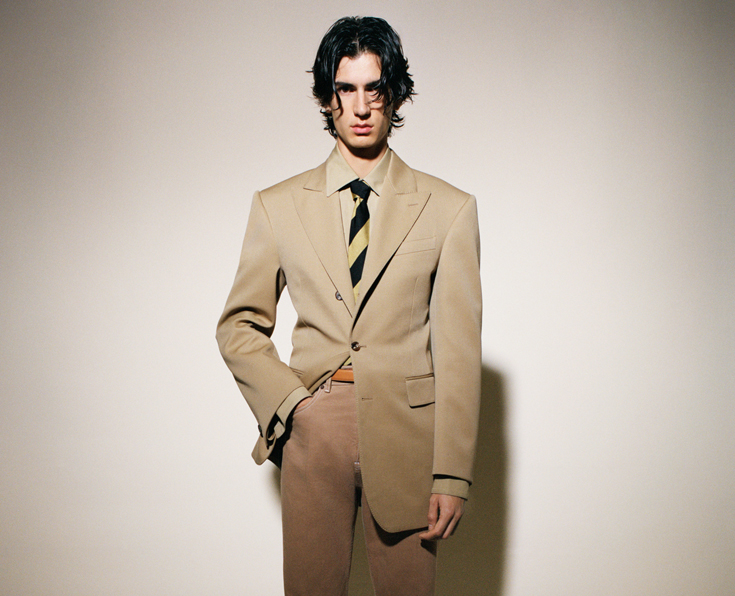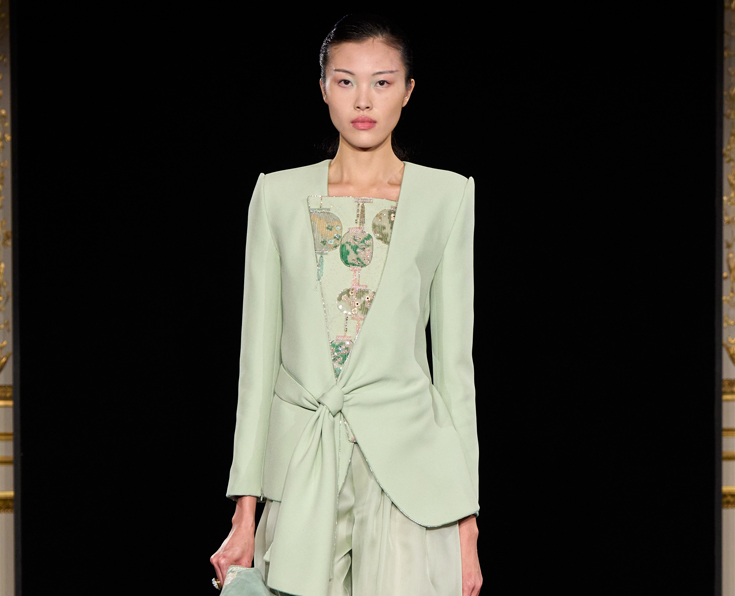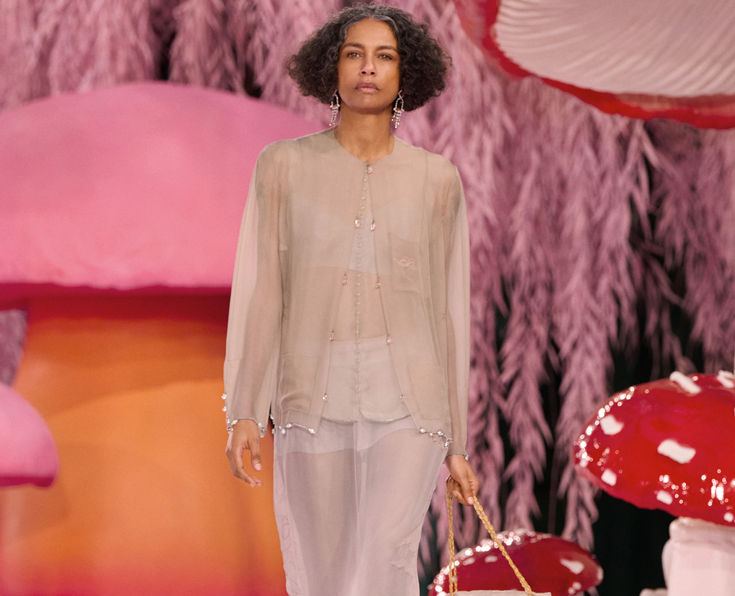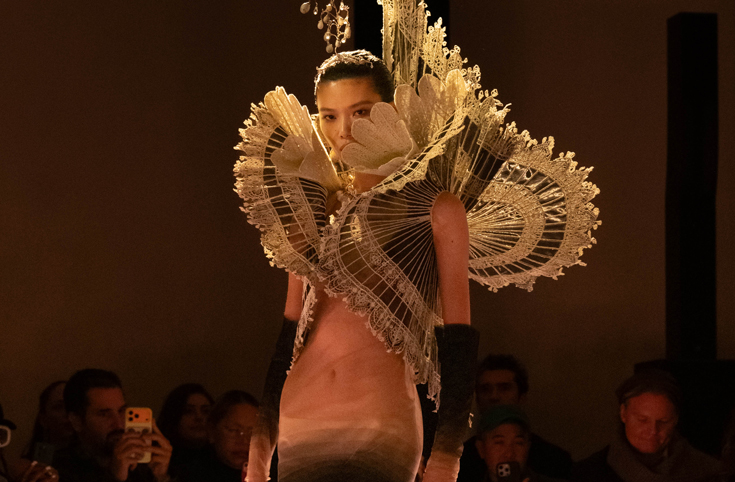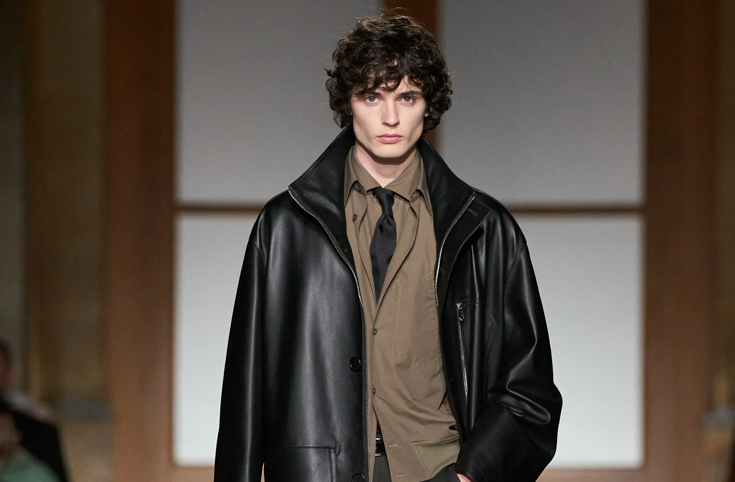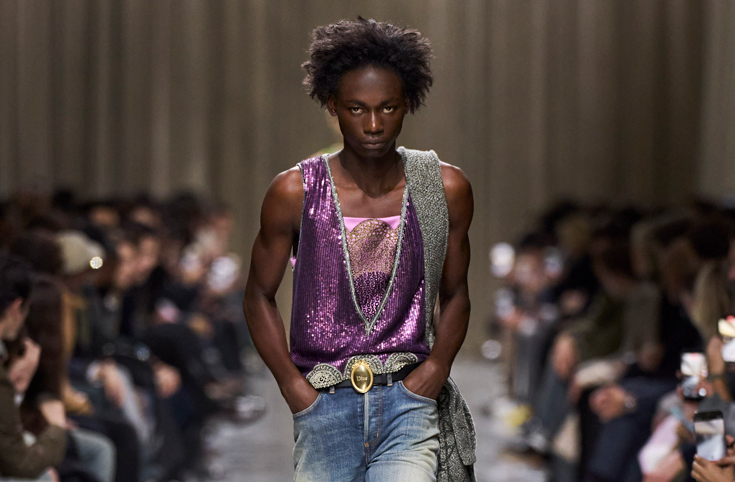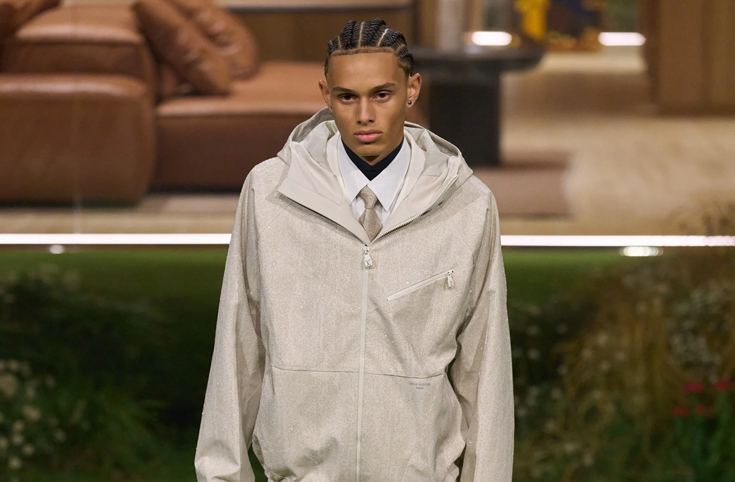BIG SEAN ON HIS RISE TO FAME

Big Sean is in a state of flow. The Detroit-raised MC arrives at the Garcia House in Los Angeles talking about manifesting and recognising his power. It’s part of his vernacular. The rapper has consciously brought about chart-topping success in music through a serious spiritual journey and has now reached a point where he’s realised what really matters: creating the best life possible.
“In 2019, it was working out. In 2020 it was making an album. In 2021 it was vocal lessons.” Big Sean has been setting yearly goals. When we speak, he’s been in the studio with artists who have been “blown away” by his elevated vocal abilities. Hard work pays off. “It’s something I’ve been taking seriously because if I strengthen my voice literally, it also strengthens it figuratively.” For 2022, the goal is to write a book. He’s been learning about the process and is getting ready to meet a publishing company to make it happen. It’s what Big Sean does best: he is the master of making what he wants happen.
Born Sean Michael Leonard Anderson in 1988, Big Sean, as he’s known professionally, is one of the most intentionally enlightened artists in his peer group. His spiritual journey began when he was 16. “It was the first time I got hit with things not going my way. I relied on a lot of spirituality and my faith. I started taking meditation seriously. I believe that’s how I manifested my deal with Kanye [West], who was my favourite and number one choice of person to sign to.” Sean signed to West’s G.O.O.D Music in 2007 but has since left the label. “I didn’t know Ye in any way, shape or form but I knew that’s what I wanted. I chose that.” His intrinsic trust in his talent and abilities is what has carried him to the top. “It was difficult choosing a path like that when everyone was graduating high school. I had scholarships to college and it was hard to see everyone around me going to college; the music game was taking some time. It taught me not to compare my life to others and to understand that, when I choose a path, I have to embrace it fully.”

Following a bout of depression when he was 30, the artist found what truly speaks to him. “I remember being the most depressed I’d ever been, even though I had the most money I’d ever had in my life. When I looked in the mirror, I realised I hadn’t been feeding into myself. I’d been trying to take care of everyone else because that’s the responsibility I put on myself. I was treating myself like a machine; I didn’t realise until my tank was on empty and that’s when I had to step back.” Sean’s relationship with his Mum, which had always been strong, had become “terrible” but, after a falling out, they eventually reconciled. On his behalf, she reached out to Marie Diamond, a master of feng shui who is referenced in Rhonda Byrne’s 2006 self-help book The Secret (another key to success in Sean’s life). “She really helped me dig deeper into my spiritual side. She taught me how to be really efficient and effective with my time and analyse how I feel through different exercises and meditations, taking the time to go to different places around the world. I went on different retreats and was literally just there to spend time with myself, to go to the top of the mountain and really see things. It helped tremendously because I opened my mind up for inspiration.”

Sean’s environment has become a key factor in living a grounded life. Feng shui has been a game-changer. Diamond helped him decipher it in his house, something she’s done for other clients including Steven Spielberg and The Rolling Stones. “I didn’t realise how important it was to know your success directions, wisdom directions, health directions. Your environment is an extension of yourself, it’s important to have that lined up.” He started working out consistently and went to therapy. “I had a great therapist. I was inspired by my Dad, who’s a Black man from Louisiana in his seventies, to go to therapy. He experienced the civil rights movement first hand; he used to get beat up for being Black, being caught on the wrong side of the train tracks. He had a lot of trauma in his life that he hadn’t dealt with, so we ended up getting him into therapy.” And from there, Sean started taking his career less seriously. “I also realised that I looked at my job like: do or die. But I’ve been broke before and although I wanted to be somewhere else, I’m not scared of it like I used to be. It was a fear of not being successful. Let all the inhibitions go and accept your purpose that you’re on your path and have to embrace it fully – the ups, the downs. When you see people like Nipsey Hussle dying, or a lot of my friends that I’ve personally lost in the last few years, it’s just like, what’s really important here? Is it trying to make the best music or is it really trying to make the best life? That’s something I was missing.”

A spiritual journey has allowed him to have a deeper perspective. He’s not necessarily making self-help music, he’s simply having a good time. “I’ve been in the studio recently making a lot of songs that are just fun.” With social media being hyper-critical, especially in the wider hip-hop community, where artists are viciously compared, from their flow to their lyrical ability, he is sanguine. “People always pick you apart,” he says. “As an artist I don’t make music to be picked apart, I do it to have fun and express myself. There’s nothing wrong with people picking it apart, it is what it is. I clearly see it because I run all my social media channels. I have a very strong fanbase as well so they’re with me on my journey. They’re down to experience me experimenting or trying new things. They hold me down and they’re with me, giving me these back-to-back number one albums. I do see a lot of love and a lot of hate. I’m not the only artist on the internet who gets love and hate. I see Eminem, Kanye, Jay-Z, Drake, all these people go through a lot of the same things, too. I can honestly say that I do not take it personally at all anymore.”

Aside from spiritual teachers, the people he’s worked with, his peers, have taught him a lot. From West, he learnt to make music without writing. “When I was working on [his 2007 album] Graduation with him, I got used to a certain way of creating without writing everything down, because the time it takes to write something down means you may lose that stream of consciousness. It’s a fluid process when you’re making a song like that.” From J. Cole, he learnt an exercise for writers’ block. “I don’t want to give the whole secret away…” he says, smiling. “But I do still use it to this day. It’s a cool technique that involves quickly writing stuff down without thinking. I don’t write my raps down, I just freestyle them into the mic, but for this specific exercise you write them down. You make a game out of it and at the end you see what you have. It can be very helpful.” And from his partner, Jhené Aiko, who he’s been back in the studio with, he’s learnt to put feelings first and take his time. “I learned from Jhené to never force things. I learned you can’t fight the universe. She’s one of the only people I’ve seen actually say, ‘No, it’s not right yet. It’s not the right time.’ I really respect that about her. It’s taught me to feel things out.”

Sean’s heroes include his grandmother, Mildred Virginia Leonard, who was one of the first Black female captains in the US Army during WWII. “She was a genius. She came from nothing, from West Virginia, grew up extremely poor and worked her way up. She always worked to give us a better life.” He speaks highly of his family and where he’s from. He names his dad (alongside Pharrell, Nigo and Virgil Abloh) among his style influences. “My dad used to wear these leather pants when he was driving me to school. I used to hate on him so bad. And now even yesterday I had on some leather pants… It’s funny to think that. My dad was a real Detroit player.”
Through everything, he protects his energy in daily morning meditations. He geeks out on spiritual enlightenment books like Don Miguel Ruiz’s The Four Agreements, Paulo Coelho’s The Alchemist and Esther and Jerry Hicks’s Ask and It Is Given (the book that helped him manifest his record deal). “Books hold a certain energy; when you have those books around you there is a certain energy to them that benefits your life and adds to your environment.” He also notes Deepak Chopra’s The Seven Spiritual Laws for Success as “life-changing and potent”. While there will be more lessons to come, Big Sean is in a place of peace. He’s balanced and grounded as he prepares to release an album this year and tour again. First stop is Coachella in April. Such is the life of one of the biggest artists in the world, totally in tune.
Taken from Issue 19 of 10 Men Australia – FUTURE, BALANCE, HEALING – out NOW.
ZEGNA: BIG SEAN, DESTINY DECIDED
Photographer ELLIOTT MORGAN
Fashion Editor VAN VAN ALONSO
Text ROXY LOLA
Talent BIG SEAN
Grooming LUCIA RODRIGUEZ
Barber RONNIE MCCOY III
Fashion assistant STEFANIE SIERS
Production RICHARD VILLANI for Villani Productions
Thanks to JOHN LAUTNER’S GARCIA HOUSE, JOHN MCILWEE and BILL DAMASCHKE


